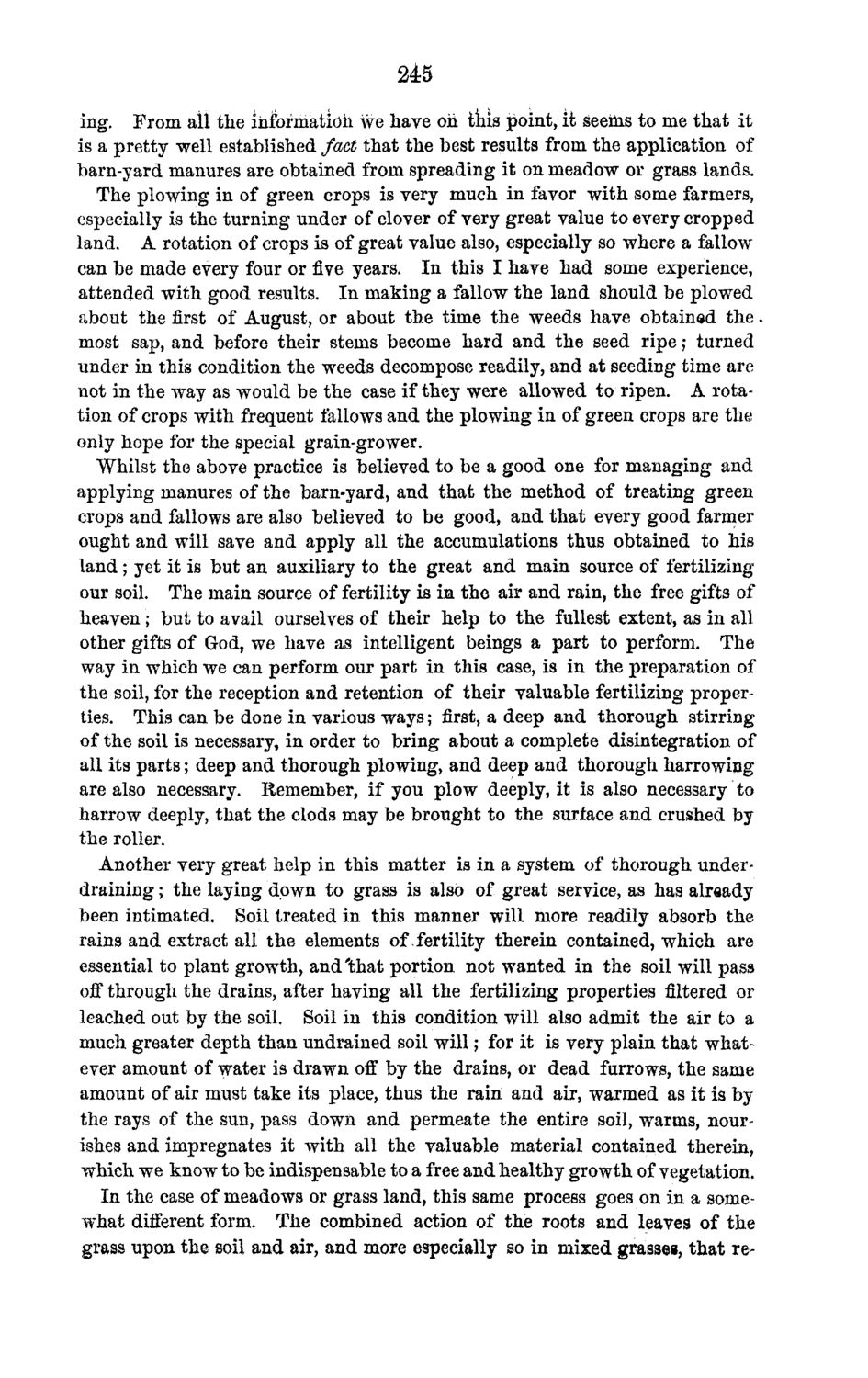| |
| |
Caption: Board of Trustees Minutes - 1870
This is a reduced-resolution page image for fast online browsing.

EXTRACTED TEXT FROM PAGE:
245 ing. From all the information we have oh this point, it seems to me that it is a pretty well established fact that the best results from the application of barn-yard manures are obtained from spreading it on meadow or grass lands. The plowing in of green crops is very much in favor with some farmers, especially is the turning under of clover of very great value to every cropped land. A rotation of crops is of great value also, especially so where a fallow can be made every four or five years. In this I have had some experience, attended with good results. In making a fallow the land should be plowed about the first of August, or about the time the weeds have obtained the. most sap, and before their stems become hard and the seed ripe j turned under in this condition the weeds decompose readily, and at seeding time are not in the way as would be the case if they were allowed to ripen. A rotation of crops with frequent fallows and the plowing in of green crops are the only hope for the special grain-grower. Whilst the above practice is believed to be a good one for managing and applying manures of the barn-yard, and that the method of treating green crops and fallows are also believed to be good, and that every good farmer ought and will save and apply all the accumulations thus obtained to his land; yet it is but an auxiliary to the great and main source of fertilizing our soil. The main source of fertility is in the air and rain, the free gifts of heaven; but to avail ourselves of their help to the fullest extent, as in all other gifts of God, we have as intelligent beings a part to perform. The way in which we can perform our part in this case, is in the preparation of the soil, for the reception and retention of their valuable fertilizing properties. This can be done in various ways; first, a deep and thorough stirring of the soil is necessary, in order to bring about a complete disintegration of all its parts; deep and thorough plowing, and deep and thorough harrowing are also necessary. Remember, if you plow deeply, it is also necessary to harrow deeply, that the clods may be brought to the surface and crushed by the roller. Another very great help in this matter is in a system of thorough underdraining; the laying down to grass is also of great service, as has already been intimated. Soil treated in this manner will more readily absorb the rains and extract all the elements of fertility therein contained, which are essential to plant growth, and'that portion not wanted in the soil will pass off through the drains, after having all the fertilizing properties filtered or leached out by the soil. Soil in this condition will also admit the air to a much greater depth than undrained soil will , for it is very plain that what* ever amount of water is drawn off by the drains, or dead furrows, the same amount of air must take its place, thus the rain and air, warmed as it is by the rays of the sun, pass down and permeate the entire soil, warms, nourishes and impregnates it with all the valuable material contained therein, which we know to be indispensable to a free and healthy growth of vegetation. In the case of meadows or grass land, this same process goes on in a somewhat different form. The combined action of the roots and leaves of the grass upon the soil and air, and more especially so in mixed grasaei, that re-
| |